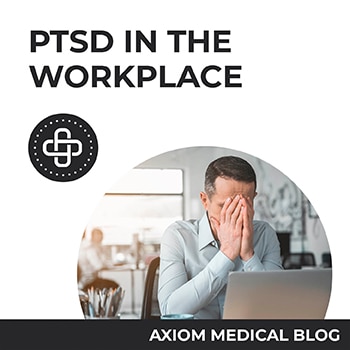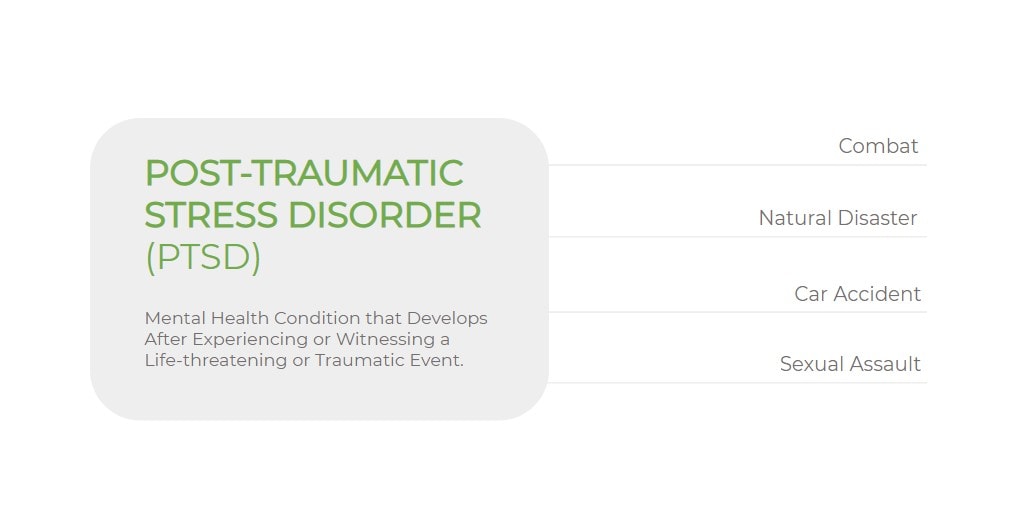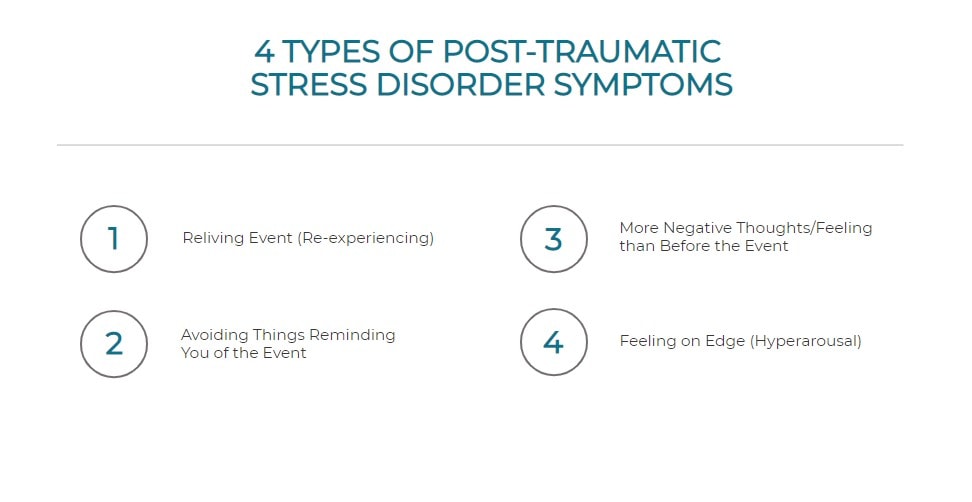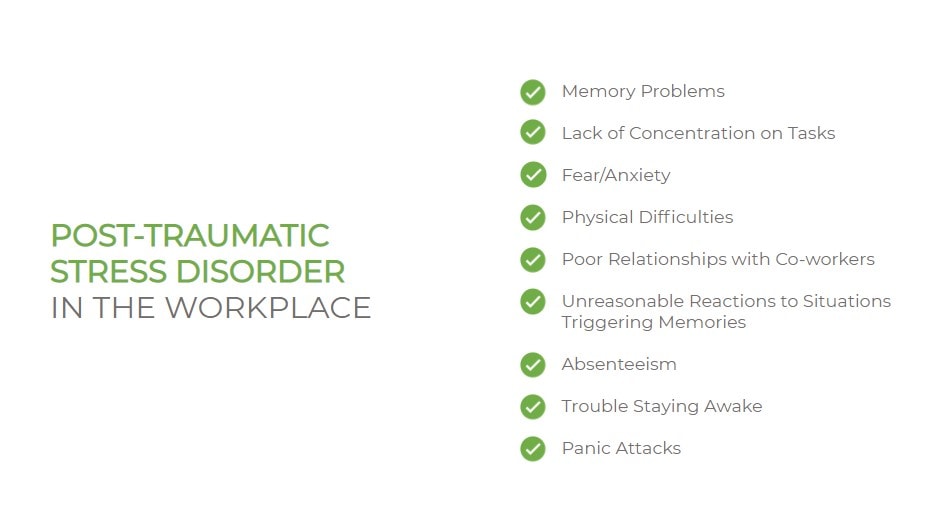PTSD in the workplace can be intimidating for both employees and employers. There are many possible reasons for a person to experience post-traumatic stress disorder in the workplace. While most cases of PTSD are due to personal loss, serious injury, accidents, and sexual violence, factors like natural disasters, combats, events like 9/11, and childbirth loss can trigger PTSD.

According to healthcare professionals, PTSD symptoms may occur soon after a traumatic event. However, there are many instances when symptoms appear months or even years after the trauma.
Talking about trauma with a co-worker makes many employees feel uncomfortable, often leading to social isolation. As a result, employees dealing with PTSD often deal with feelings of discouragement and hopelessness often leading to depression. Can employers help their employees dealing with PTSD? Let’s find out.
Top Reasons for PTSD:

PTSD is caused by exposure to a near-death experience, actual or threatened death, serious injury, sexual trauma, sexual violence, and events such as fires, natural disasters, accidents, combat, robberies, and mass attacks/shooting. PTSD is most common among survivors of such incidents and the families of the deceased. Occupational PTSD is common among military combat veterans, firefighters, police, and those in occupations with a high risk of trauma exposure, such as emergency medical personnel.

Signs of PTSD
Common PTSD signs include:
- Reliving the event
- Avoiding things reminding you of the event
- More negative thoughts/feelings than before the event
- Feeling on edge (Hyperarousal)
In the workplace, one of the first signs of PTSD is decreased productivity. A sudden or gradual drop in performance, frequent work absences, and low productivity are some of the first signs of PTSD. Since people with PTSD experience distressing memories more often, they live in extreme distress and relive the trauma event. This, in turn, causes the person to avoid anything that reminds them of the trauma.
Here is an infographic showing some of the common signs of PTSD in the workplace.

Treatment Works
PTSD can be effectively treated through therapies and medications. While most of the medicines are focused on psychotherapies, here is a list of other treatment options for PTSD:
- Prolonged exposure therapy
- Cognitive processing therapy
- Psychotherapy involving counseling, meditation, and float therapy
- Eye movement desensitization
- Reprocessing therapy
Certain prescribed medications have also been effective in combination with one or multiple psychotherapies to treat PTSD. Those dealing with post-traumatic stress disorder should seek help from medical professionals who are proficient in treating psychology-related problems. These treatments can take a few weeks to several months to show results.
Supporting Employees with PTSD in the Workplace
Managers and co-workers can always help and support employees dealing with PTSD. Since such a psychological problem is challenging to live with, co-workers and employers need to be patient while handling such persons.
Employee Therapy Support:
Since most PTSD cases require therapies, employers may consider working with the employees and supporting them throughout their recovery. Employers can establish a suitable work climate based on the employee’s medical needs. Remote working or medical leaves are some of the options.
Encourage Employees to Seek Treatment:
The resulting negative behaviors often seen in PTSD patients are not entirely in their control. Impaired performance at work is a result of their condition. Therefore, employers may want to help their employees to seek the proper treatment. Employers may also consider offering an Employee Assistance Program with mental and behavioral health counseling options for such employees.
Workplace Education:
It is not uncommon for a person with PTSD to feel awkward and uncomfortable at the workplace. With workplace education on mental and behavioral problems, co-workers can support people dealing with PTSD.
Watch Axiom Medical’s health experts discussing this topic. Click below!
Stronger Together – Rebuilding Life With PTSD
Axiom Medical is Here To Help!
Does your organization need an occupational healthcare program and workplace injury case management to deal with occupational injuries? Axiom Medical can help. With our employee total health program featuring Workplace Employee Mental Health Solutions, we can help your organization with workplace healthcare needs. Contact us today to learn more!
Contact Us

With a career focused on digital marketing, Chitra is a specialized SEO-Content marketer. After moving from biotechnology to business operations and marketing, Chitra started her digital marketing career as a freelance content developer and technical writer. With Axiom, as a content marketing & SEO specialist, she is passionate about creating informative marketing copies for optimum search engine performance.
Find out more about our Tempo Live Behavioral Health and Injury Case Management services.









